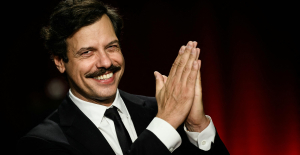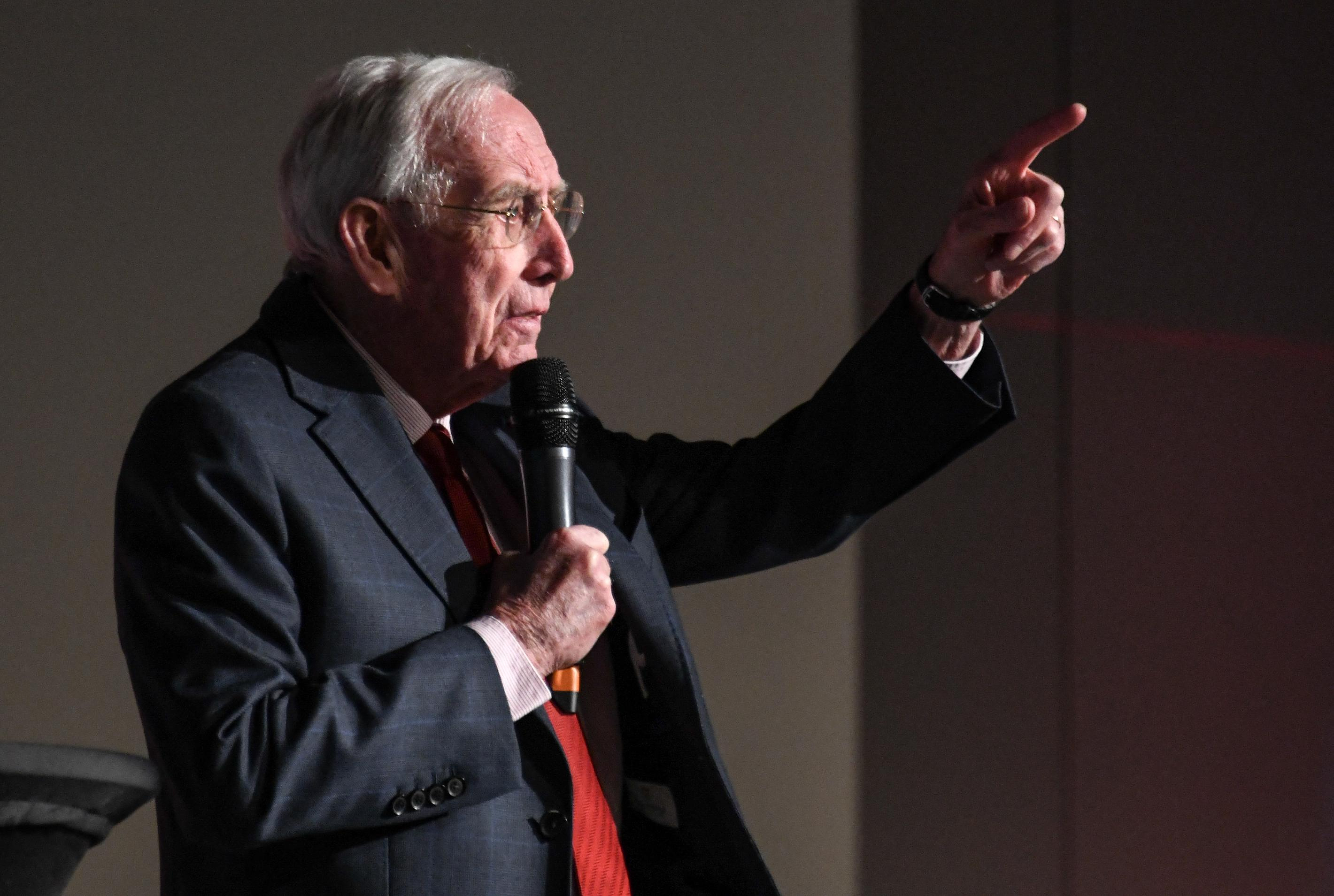In France, the power struggle between the government and the trade unions entered the second, decisive round on this “Black Tuesday”. Two months after pension reforms were announced, union leaders announced “France's standstill” on this sixth day of action. The domestic secret service expected up to one and a half million demonstrators in advance. According to authorities, between 1.1 and 1.4 million took to the streets on Tuesday to protest Emmanuel Macron's pension reforms.
"Manu, you want to give us 64, we'll give you May 68," chanted demonstrators in Paris, alluding to the increase in the retirement age from 62 to 64 and the general strike during the student revolt. There were demonstrations not only in the metropolises, but also in small towns and even villages. Observers are already comparing the protests against the pension reform with the yellow vest movement, which was also rooted in the province.
It is the eleventh pension reform in recent decades, but never has the rejection been so clear, the resistance so great. Three-quarters of the active population oppose raising the retirement age gradually to 64. The few supporters of the reform are mainly found among pensioners who are not affected by the measures and who made a significant contribution to Macron's election victory in April.
Although Labor Minister Olivier Dussopt speaks of a "left-wing reform", the French government cannot assert itself with this reading. This is due to the fact that the increase in standard working hours primarily affects low earners and women who have no gaps in their careers due to child-breaks. Anyone who has studied has to work until the age of 67 anyway in order to be able to enjoy a pension without deductions.
"The reform is perceived as unfair, unclear, brutal and inefficient", analyzes Frédéric Dabi, Director General of the opinion research institute IFOP. “Two-thirds of those questioned are against it, but around half vehemently reject it, which has never happened before. The more the Prime Minister Elisabeth Borne and her ministers justify them, the more the rejection grows. Macron clearly lost the battle of opinions," says Dabi in an interview with WELT.
In the early morning hours on Tuesday, strikers blocked traffic islands, not a single tanker truck left the country's refineries, only every fifth train ran, air traffic was restricted and around a third of the teachers stopped working. The employees of the nuclear power plants already started to throttle the electricity production at the weekend.
The power went out for half an hour in the morning in the central French city of Périgord. Electricity supplier EDF spoke of an "illegal act". Unlike the strikes in January and February, workers from industrial giants such as Airbus, Renault, TotalEnergies and ArcelorMittal have also joined the strike this time. "We will bring the economy to its knees," announced the radical trade union CGT. After the success of the “Black Tuesday” they threatened a general strike.
Although the French National Assembly is more colorful than ever and both left- and right-wing populists have large factions, no debate took place in parliament. The Linksunion Nupes is responsible for this, which prevented debates and votes with well over 1000 amendments. Pollster Dabi, who sees Marine Le Pen's "Rassemblement National" as the real winner, calls it a "democratic catastrophe". "The RN is now the only credible opposition force," said Dabi.
Meanwhile, chaotic parliamentary bullying by left-wing populists has ensured that the battle of opinions is fought on the streets. There, the question of pensions has turned into a fundamental debate, which is increasingly concerned with the question of social justice, working conditions and a lack of appreciation for work. Are the French lazier than others? "No," says Dabi resolutely, "but the work has lost its central importance."
European neighbors, above all the Germans, look at the protests either with incomprehension or admiration. "In view of the often miserable pensions, long working lives and a dysfunctional pension system, the Germans have every reason to take to the streets as well," writes the German political scientist Felix Syrovatka in "Le Monde", where there is now interest in how the movement's neighbors are perceive.
"France is a kind of political UFO in the eyes of Europeans," says Dabi. "But the logic of the ranking as in the Grand Prix d'Eurovision does not work in this case. Here people say: 'the poor Spaniards, the poor Germans'! The French come up with the counter-argument and ask why they should actually adjust downwards? France is still proud of a social model that stems from the Resistance movement. Retirement at 60, which François Mitterrand introduced, is still considered a social achievement that people want to defend.”
Will Macron buckle? Unlikely. The reform could be passed in Parliament as early as Thursday. For this, however, the President needs the votes of the Conservative MPs, not all of whom are certain of him. Should Prime Minister Elisabeth Borne fall back on the constitutional clause of paragraph 49.3 and push the law through without a vote, a red line would be crossed (she last did this in autumn to pass a controversial budget law, ed.). France would then be certain of further protests, even a crisis of democracy.

 Poland, big winner of European enlargement
Poland, big winner of European enlargement In Israel, step-by-step negotiations for a ceasefire in the Gaza Strip
In Israel, step-by-step negotiations for a ceasefire in the Gaza Strip BBVA ADRs fall almost 2% on Wall Street
BBVA ADRs fall almost 2% on Wall Street Ukraine has lost 10 million inhabitants since 2001... and could lose as many by 2050
Ukraine has lost 10 million inhabitants since 2001... and could lose as many by 2050 Sánchez cancels his agenda and considers resigning: "I need to stop and reflect"
Sánchez cancels his agenda and considers resigning: "I need to stop and reflect" The Federal Committee of the PSOE interrupts the event to take to the streets with the militants
The Federal Committee of the PSOE interrupts the event to take to the streets with the militants Repsol: "We want to lead generative AI to guarantee its benefits and avoid risks"
Repsol: "We want to lead generative AI to guarantee its benefits and avoid risks" Osteoarthritis: an innovation to improve its management
Osteoarthritis: an innovation to improve its management Ukraine gets a spokesperson generated by artificial intelligence
Ukraine gets a spokesperson generated by artificial intelligence The French will take advantage of the May bridges to explore France
The French will take advantage of the May bridges to explore France Organic flour contaminated by a recalled toxic plant
Organic flour contaminated by a recalled toxic plant 2024 Olympics: Parisian garbage collectors have filed a strike notice
2024 Olympics: Parisian garbage collectors have filed a strike notice Actor Laurent Lafitte leaves the Comédie-Française
Actor Laurent Lafitte leaves the Comédie-Française Death of Paul Auster: Actes Sud says he is “lucky” to have been his publisher in France
Death of Paul Auster: Actes Sud says he is “lucky” to have been his publisher in France Lang Lang, the most French of Chinese pianists
Lang Lang, the most French of Chinese pianists Author of the “New York Trilogy”, American novelist Paul Auster has died at the age of 77
Author of the “New York Trilogy”, American novelist Paul Auster has died at the age of 77 Omoda 7, another Chinese car that could be manufactured in Spain
Omoda 7, another Chinese car that could be manufactured in Spain BYD chooses CA Auto Bank as financial partner in Spain
BYD chooses CA Auto Bank as financial partner in Spain Tesla and Baidu sign key agreement to boost development of autonomous driving
Tesla and Baidu sign key agreement to boost development of autonomous driving Skoda Kodiaq 2024: a 'beast' plug-in hybrid SUV
Skoda Kodiaq 2024: a 'beast' plug-in hybrid SUV The home mortgage firm rises 3.8% in February and the average interest moderates to 3.33%
The home mortgage firm rises 3.8% in February and the average interest moderates to 3.33% This is how housing prices have changed in Spain in the last decade
This is how housing prices have changed in Spain in the last decade The home mortgage firm drops 10% in January and interest soars to 3.46%
The home mortgage firm drops 10% in January and interest soars to 3.46% The jewel of the Rocío de Nagüeles urbanization: a dream villa in Marbella
The jewel of the Rocío de Nagüeles urbanization: a dream villa in Marbella Europeans: a senior official on the National Rally list
Europeans: a senior official on the National Rally list Blockade of Sciences Po: the right denounces a “drift”, the government charges the rebels
Blockade of Sciences Po: the right denounces a “drift”, the government charges the rebels Even on a mission for NATO, the Charles-de-Gaulle remains under French control, Lecornu responds to Mélenchon
Even on a mission for NATO, the Charles-de-Gaulle remains under French control, Lecornu responds to Mélenchon “Deadly Europe”, “economic decline”, immigration… What to remember from Emmanuel Macron’s speech at the Sorbonne
“Deadly Europe”, “economic decline”, immigration… What to remember from Emmanuel Macron’s speech at the Sorbonne These French cities that will boycott the World Cup in Qatar
These French cities that will boycott the World Cup in Qatar Football: a goal from Georges Mikautadze broadcast...in Times Square
Football: a goal from Georges Mikautadze broadcast...in Times Square Dortmund-PSG: in video, Borussia’s opening score
Dortmund-PSG: in video, Borussia’s opening score Tennis: Sabalenka stops Andreeva and enters the last four in Madrid
Tennis: Sabalenka stops Andreeva and enters the last four in Madrid “It doesn’t look very positive”, big concern around Lucas Hernandez injured in the knee
“It doesn’t look very positive”, big concern around Lucas Hernandez injured in the knee


















